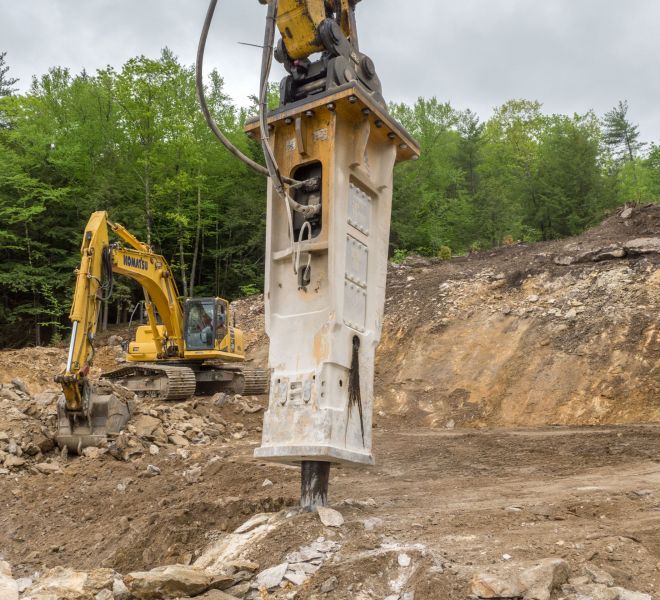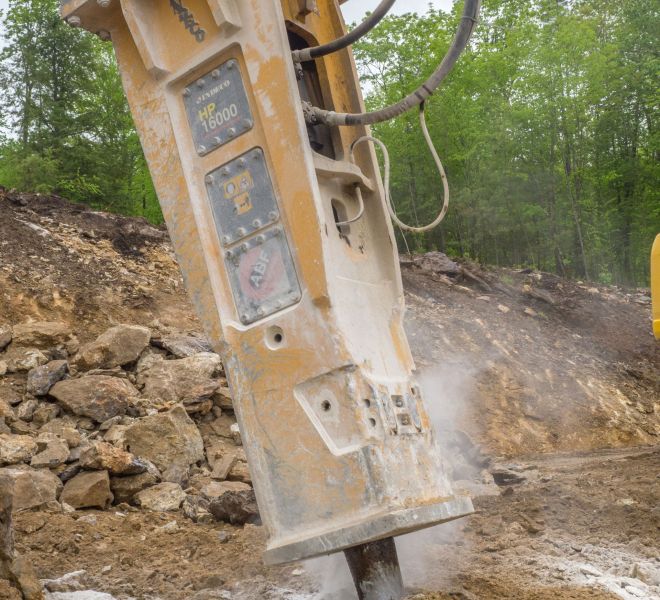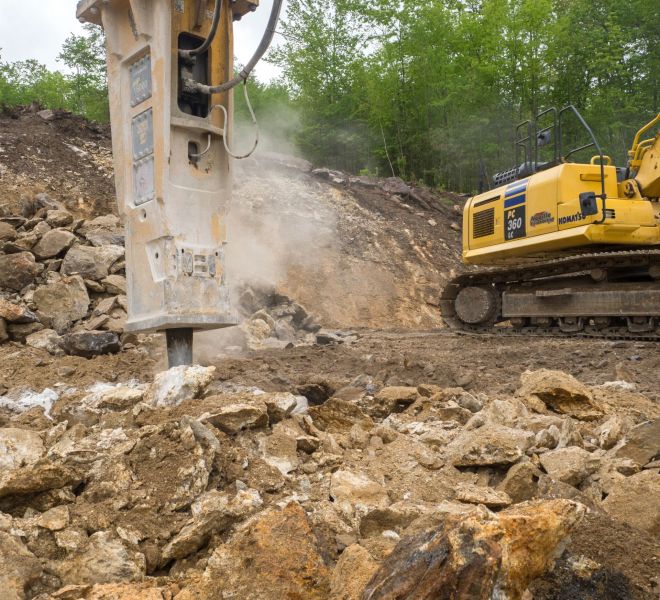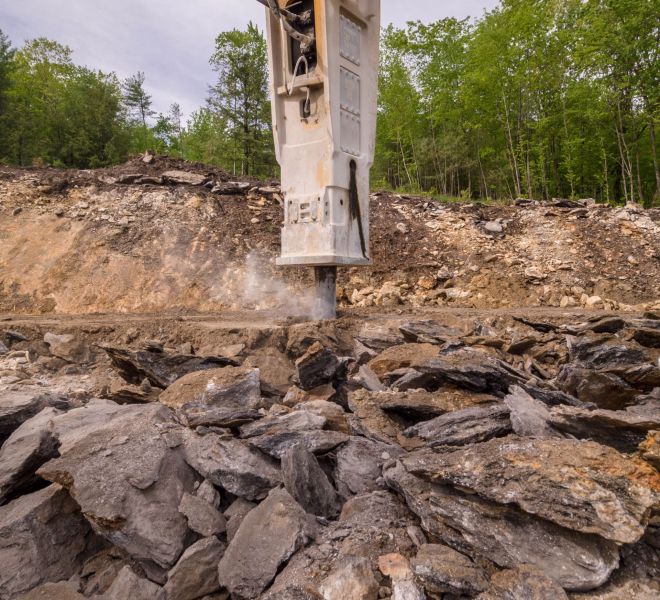Indeco Rocks in New Hampshire
New Hampshire Rock Reduction, contractors based in New England, use Indeco hammers for rock breaking and excavation, their choice for improving productivity
Located in the northeast corner of the U.S., New Hampshire is one of the country’s smallest states. Noted for a rocky terrain, New Hampshire’s geology includes a heavy presence of metamorphic, especially igneous, rock formations, which yield different types of granite. The many quarries producing this material used in construction, such as ornamental stone and for monuments, earned New Hampshire its nickname of The Granite State. Even in areas of New Hampshire where the rock formations do not justify quarrying, the land is so rocky that any excavation job requires the removal of large boulders or extraction of rock often with a high compressive strength.
New Hampshire Rock Reduction leaves blasting behind and chooses Indeco
Given the occurrence and hardness of the rock masses, blasting was long considered the only valid method for excavating to allow for civil engineering and industrial projects, as well as road infrastructure works. However, over the last decade the hammer has become more commonly used for trenching, laying utilities, excavating small and medium-sized lots, and profiling slopes.
Parker Mullins is one professional who believed in the capabilities of hammers. After gaining valuable experience working for one of the major local contractors specialized in blasting, nine years ago he decided to start his own company, New Hampshire Rock Reduction. Mullins was aware of the increasing difficulties using explosives due to environmental impact and a constant rise in costs; he then realized that in certain situations the hammer could offer solid advantages and in the end be a more efficient and less costly alternative.
His conviction led him to take the next step: purchasing an Indeco HP 5000, followed by an HP 9000, then an HP 12000 (note: for markets outside USA Indeco classifies these models respectively as the HP 8000, HP 13001 and HP 16000) . The decision was a calculated one, as he explained: “Prioritizing the use of the hammer was definitely the decision that gave our company a future, as it allowed us to take on a whole set of projects that we’d otherwise be excluded from. While blasting certainly offers advantages when the job is to excavate large areas containing formations with little fracturing and certain types of very hard gray granite (over 130 MPa-Ed. note), in other situations it’s not the best solution, especially when working in residential areas where the lots include very fractured rock masses.
Preparations for blasting can also be complex; often we have to create the service road so that the drill rigs can reach the areas where the explosives are to be placed, and that translates into increases in costs and time. In those conditions, in which most of our work takes place, excavators coupled with hammers are much more productive and ensure greater profitability.” New Hampshire Rock Reduction’s experience also demonstrates how, in certain situations, the hammer is fundamentally more efficient compared to blasting; it’s also the only method for jobs like profiling slopes or excavating rock in big areas within residential zones or areas that have a protected status: “In the job we did in Goffstown we excavated an area of over 20,000 sq. ft.
This was the last lot of a project for a future real estate development, and explosives could be used only in the upper part since there was a protected wetland below. We achieved excellent productivity using the HP 16000 on the fractured granite, although the presence of mica and quartzite increased the abrasiveness of the material, which obviously had effects on the chisel. Our productivity was similar in another job in a residential area of New Boston, where we used the HP 13001 to excavate a lot containing blue granite with practically no fracturing and considerable hardness. Again, in a situation where blasting would have been impossible, the hammer was very effective despite the fact the material had a compressive strength that tested the limits of this excavation method.”
A support worthy of a brand
The constant use of the hammer inevitably involves routine maintenance issues. If not met properly, those problems can first result in lower productivity and second, affect the vital parts of the attachment. To address this, Indeco North America and its network of almost 60 dealers have always made service a priority.
As Nick Davidson, sales manager of Indeco North America for New England, told us: “Our approach to service is that there are no customers with more or less importance; anyone who buys our hammers is treated equally when it comes to assistance. To ensure that, we along with our dealer network, are committed to solving problems as quickly and most effectively as possible. In my view, service is the standard we are measured by, so whenever I get the chance, I visit our customers, even if they haven’t bought a hammer recently or have no plans to in the immediate future.The people using our hammers have a very tough job; I’m convinced that understanding their demands and helping them achieve their goals is an essential part of our work.”
Indeco has been in the United States for 20 years, and through its branch Indeco North America the company has sold several thousand hammers, the great majority of them still being used. Emphasis on service is an aspect that certainly hasn’t escaped the attention of Parker Mullins, who commented: “We’re very satisfied with the Indeco product, and I’m not only referring to its quality, reliability and productivity, but also to the steady support provided by Indeco North America and the dealer Anderson Equipment from whom we bought all three hammers. Ours is an continuous collaborative relationship; we could say that Indeco has really helped us to grow.”










